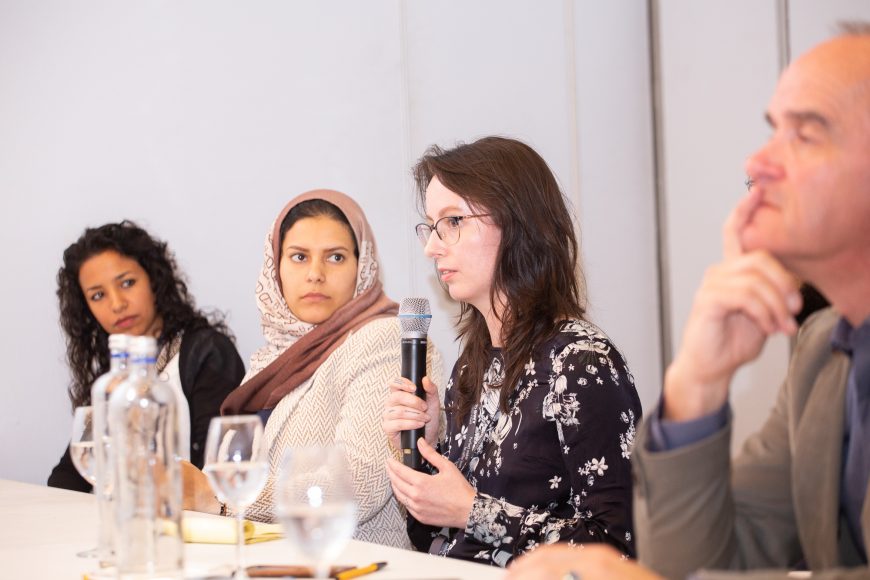Supporting coffee farmers in a war-torn country: From Raymah mountains to the world, when Yemeni coffee travels to Amsterdam
ACTED has been aiming to create new opportunities for smallholder coffee producers in Raymah, Yemen, by forming 1,600 farmers in coffee cultivation, harvesting and processing, and by rehabilitating water points, with support from the Centre de Crise et de Soutien of the French Ministry of Foreign Affairs (CDC) and the European Union. In 2017, Raymah farmers cultivated about 1,1 million coffee trees and harvested almost 255,000 kilogrammes of coffee, enough to produce coffee for more than 70,000 consumers for a whole year.
To celebrate the end of this one-year project, ACTED participated in the “World of Coffee” fair that took place in Amsterdam, the Netherlands, between June 21st and 23rd of 2018.
Linking small producers in a war-torn country to the international market
Representatives of Yemen’s coffee community have been denied visas, following the conflict that has been tearing the country apart for over four years. But their coffee did make it to Amsterdam.

During the “World of Coffee” fair, in a panel lecture titled “Make Coffee Not War: Brewing Up Peace in Yemen”, ACTED discussed Yemeni coffee, the humanitarian context in the country and the potential impacts of the entrance of Yemeni coffee to the world market on rural communities of Yemen. The objective of the discussion was to raise awareness on the humanitarian crisis and to present specialty coffee as a very effective vehicle to support Yemen socioeconomically through this difficult period and beyond.
ACTED’s participation in this event furthers the connection between small coffee producers from the highlands of Raymah to the world’s market, by facilitating the exposure of a fair, high-quality and sustainable coffee product, even in time of conflict.
‘This contributes to emphasize the humanitarian context in Yemen and how the coffee industry can support development and stabilization in-country,” she continues. The visibility gained through the event will benefit the Yemeni coffee producers supported by ACTED and the CDC to promote their coffee as a specialty one. “Joining this very closed and exclusive market would yield significantly higher profits and will considerably improve livelihoods of rural farmers and their communities,” Daria continues.
Boosting local collective, effective and sustainable solutions
The crisis has both immediate and long-term effects on the life of Yemenis.
“The potential long-term impacts of increased production and export of high-quality coffee on the livelihoods of rural coffee farmers and their communities is the increased capacity of farmers to collectively, effectively and sustainably address localized challenges to their coffee production through an increase in income, and without support of external organizations,” Daria added.

ACTED was also present at the Qima Coffee Exhibition booth to emphasize ACTED’s work in Yemen, particularly in regard to supporting the coffee value chain for rural coffee farmers, and the impact of buying Yemeni coffee on local communities.
